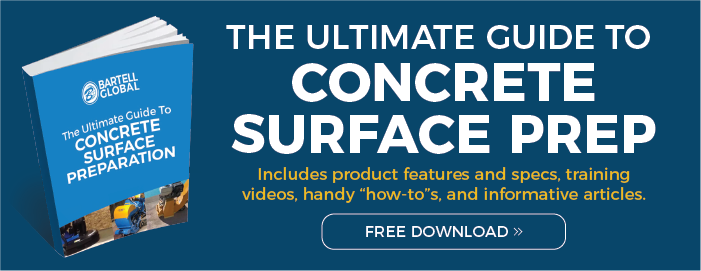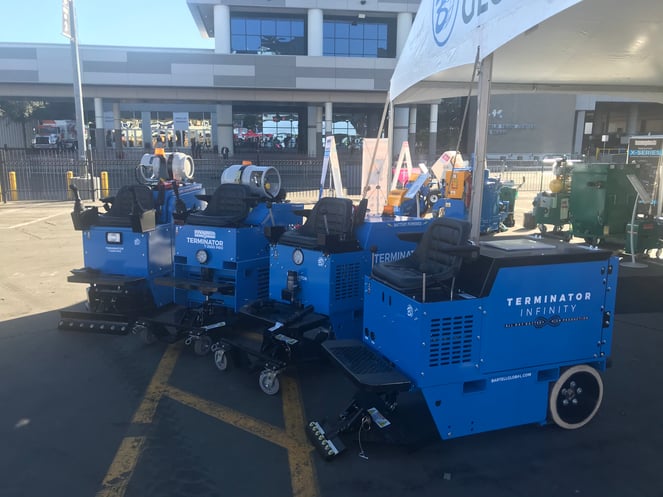
The first thing I’m going to say—and the last thing I am going to say—is the most important step a contractor should make when considering the purchase of a floor scraper: find a KNOWLEDGEABLE salesperson!
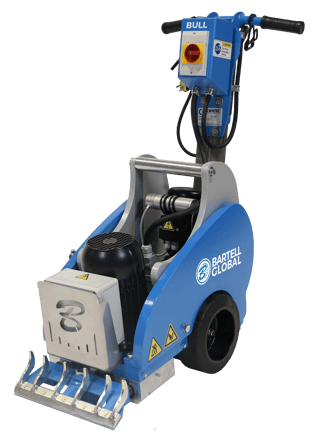
I admit this might be the hardest part! The RIGHT salesperson is one you can trust to not just sell you a machine but also ask you the correct questions so they can steer you to the best machine for YOUR needs!
Floor removal machines are by no means cheap! They are a very sizable investment for most contractors, but the RETURN on your investment can be incredible. So it’s worth doing. But it's because of the “investment vs. return” issue that choosing the correct machine is so important. The following are a few questions I would suggest that you ask yourself before making your final decision.
- Which MANUFACTURER/BRAND should I choose?
There are probably 7 or 8 manufacturers making ride-on and walk-behind scrapers and most do an “OK to good” job at making an effective machine. But because there are real differences between them, it is necessary to do your homework and make sure you get the machine that most closely fits your needs.
Some machines, for example, may not be powerful enough for the materials you are removing. A machine may work great for carpet & VCT removals, but might not be powerful enough to remove the more challenging materials like quarry tile, wood flooring, and cementitious toppings. And some machines may be too big to access your typical job site which would limit their usefulness to you.
Consider the level of support you can expect to get from the manufacturer. Are they a new start-up, or long-standing trusted manufacturer? Will they still be in business five years from now, so you will be able to get parts and technical support beyond the initial purchase? How long have they been making the specific machine you are considering? Is it proven and trusted in the industry? Do you need specialized training to operate it?
Here's a smart pro-tip... Look around at different websites and see what 15-year-old machines from various manufacturers are selling for and that will give you a good idea of how they compare over the long haul.
- Walk-Behind or Ride-On?
To answer this, consider a few things. First, the SIZE of your average project as well as accessibility to most sites. For instance, most residential flooring installers will lean towards a walk-behind machine because it can be a challenge to stage a ride-on machine in the average house. The total square footage being removed from a residential home is usually small, compared to a typical commercial project. And when removing flooring from a wood sub-floor or lightweight concrete, in almost all cases a ride-on will be simply too heavy for the floor. For these reasons, a walk-behind would be most appropriate chooice.
But if you are a mostly commercial operation, removing many thousands of square-feet-per-year of difficult-to-remove flooring, then a ride-on machine would most likely give you much better results, and a better return on your investment.
For more information on Walk-Behind scrapers click here.
- Propane or Battery-Powered Ride-On?
Be careful with this one, if I can use a propane-powered machine, hands down, it is the better way to go as it can be run 24/7 needing no charge time. Machines vary, but they are usually more powerful and much more easily operated compared to battery-powered.
But if you are working in an enclosed environment, occupied space, or medical facility you will not be allowed to use a propane-powered machine and must use a battery-powered one only.
- There is an exact RIGHT machine for YOU!
Here is where that knowledgeable salesperson will be invaluable. For example, here at Bartell Global, we manufacture the well-known TERMINATOR Ride-On Floor Scraper. We have been making the Terminators for well over 25 years and we currently manufacture five different models— two propane-powered machines and three battery-powered machines. A good knowledgeable salesperson will ask you very specidic questions and offer you the machine most appropriate for your projects. I think of it like Ford Motor Company. Ford manufacturers and sells, I don’t know, maybe ten different styles of truck? They all haul stuff but they are very different from each other.
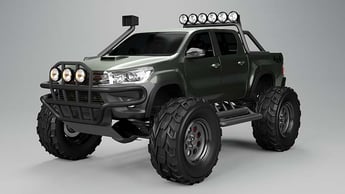
If you buy a little F-150 to haul your big 40' fifth-wheel you are going to be disappointed. And if you buy the F-350 XLT Lariat with the super-cool-guy package for work on a heavy construction site, you will be the envy of your employees... but is that worth the thousands of dollars you will have OVERPAID for the bells-and-whistles you'll never use on your workhorse truck?
So, get the advice you need to make the best choice.
CLICK HERE to see Bartell Global’s line of TERMINATORS
- Can I keep this machine busy?
This is one question only YOU can answer because no one knows your market better than you. Ask yourself a few questions:
“How much flooring do I remove per year?”
“If I had a machine, could I then pull in more removal work to justify the cost?”
“Do I live close enough to a big enough city that I could go after more (and bigger) flooring removal and surface preparation projects?”
“How much competition do I have?” This is an important factor to help tailor your service offerings and leverage your investment in equipment. In bigger cities, there are more opportunities, but usually more competition too. I have seen guys do quite well in smaller cities as sometimes there are very few — or zero — competitors with ride-on scrapers, and your price-per-foot can go up! Spending a big chunk of money on an expensive machine is a great motivator to find the work and expand your business! But you need to know your market well in order to leverage those decisions.
- Do I need training or certification to operate this machine?
If you have never owned a ride-on scraper then the answer is a definitive YES! Get good training! For obvious reasons, you want to be SHOWN how to operate the machine safely and properly, to reduce the risk of damaging the machine... not to mention the walls, doorknobs, lights, coworkers toes/shins/knees, and... 🤔 what else have I crunched over the years? Oh yeah! Floor-to-ceiling windows in high-rises! 😱
It is common sense that training, experience, and continuous education will help you draw the most benefit out of your machine.
With regards to certification, the laws vary from state to state (in the USA) and provinces (in Canada) so you need to check on your specific area. There are not many, but in a few areas, you do need to be certified to legally operate ride-on floor scrapers. This, by the way, is easily done for the TERMINATOR through the training you can get through Bartell Global and most likely through the other manufacturers of ride-on machines too.
- Have I factored in the additional equipment I will need?
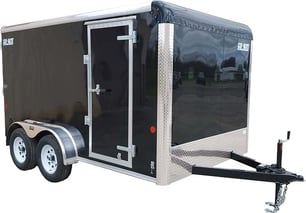 Contractors sometimes forget they need a good way to transport and store the machine. I have seen a few good ideas, but by far the most common is a covered trailer with a ramp door. If you choose this option, you will need to “beef up” the floor and ramp to handle the weight of a ride-on. Also, I recommend a tandem axle trailer for safety. Some contractors prefer an open trailer (especially in the Southwest) and that works, but I just like the protection from the weather and theft you get from a covered trailer. Another idea is a trailer with as LOW a bed as possible to make loading and off-loading easier. Trailers with the bed that lowers make loading and unloading very easy as well. If you choose a box van with a lift gate, make sure that it is a BIG enough liftgate, as most are far too small to safely lift a machine. And of course, you will need an adequate storage area, preferably heated in our colder areas.
Contractors sometimes forget they need a good way to transport and store the machine. I have seen a few good ideas, but by far the most common is a covered trailer with a ramp door. If you choose this option, you will need to “beef up” the floor and ramp to handle the weight of a ride-on. Also, I recommend a tandem axle trailer for safety. Some contractors prefer an open trailer (especially in the Southwest) and that works, but I just like the protection from the weather and theft you get from a covered trailer. Another idea is a trailer with as LOW a bed as possible to make loading and off-loading easier. Trailers with the bed that lowers make loading and unloading very easy as well. If you choose a box van with a lift gate, make sure that it is a BIG enough liftgate, as most are far too small to safely lift a machine. And of course, you will need an adequate storage area, preferably heated in our colder areas.
- Do I have the right people in place?
This question is directed more to the owner or manager of bigger flooring, demolition, abatement companies as well as large general contractors, employers who are not operating the machine themselves. As we have mentioned, a ride-on machine is a serious investment and needs to be operated, transported, and taken care of properly. That takes someone who is responsible and can be trusted to make the machine “his baby”; who will make sure the machine is running correctly, and that proper maintenance is regularly done. You may have a large crew, but I would select a small handful of operators who are trained and trusted to operate the machine.
So, in conclusion, if you have done your homework and thought about these 8 points, and if that knowledgeable salesperson has helped you select the correct machine for your needs, then I would bet hands-down that you will find that buying a floor-scraper is the correct decision in the end. They may be out there, but I just don’t know of anyone that has bought a ride-on scraper — especially a Terminator —and has regretted it.

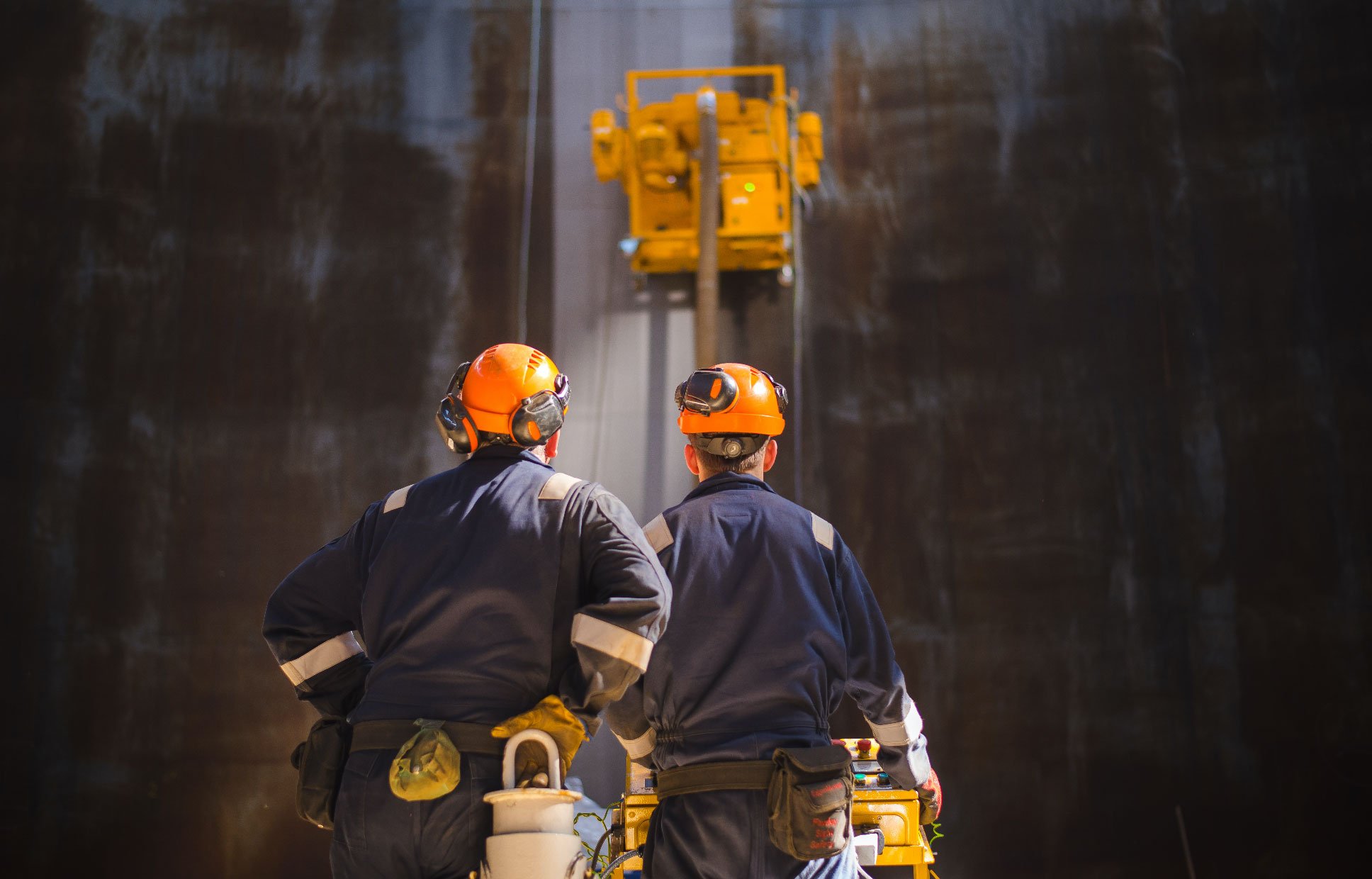
 By
By 